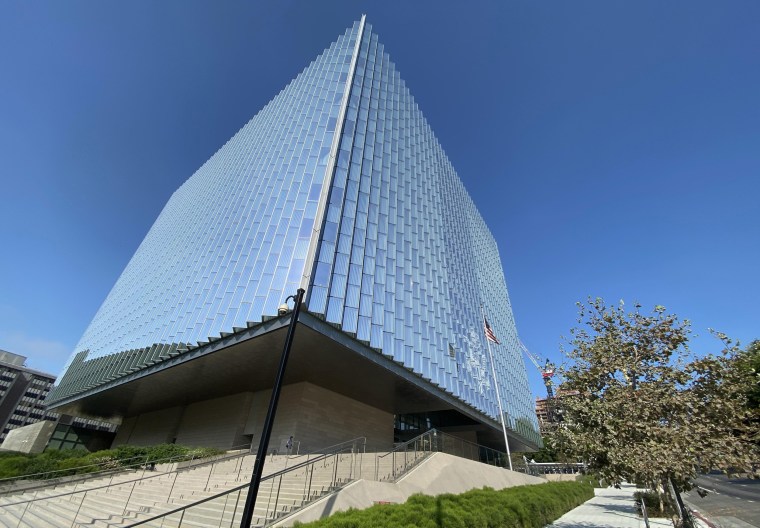House passes bill to rename L.A. U.S. Courthouse after Latino family who helped desegregate schools

The House passed bipartisan legislation Tuesday evening to rename the Los Angeles U.S. Courthouse in honor of a Latino family who paved the way for school desegregation.
The bill seeks to designate the courthouse located at 350 W. First Street in Los Angeles as the Felicitas and Gonzalo Mendez United States Courthouse.
The Mendez family helped change the course of U.S. history almost eight decades ago after their daughter wasn’t allowed to enroll in her neighborhood school that was only for white children. They brought a lawsuit that ended school segregation in California in 1947, and their legal victory was later used as a blueprint for the 1954 Brown v. Board of Education landmark ruling, which found segregation in public schools unconstitutional.
Felicitas Mendez was Puerto Rican and her husband, Gonzalo Mendez, was Mexican American.
“The Felicitas and Gonzalo Mendez U.S. Courthouse will be a powerful symbol of the enduring Latino American legacy and our nation’s broader struggle for equality,” Rep. Jimmy Gomez, D-Calif., the bill’s main sponsor, said in a statement. “I urge the Senate to pass it quickly and enshrine this important piece of history in our nation’s story.”
If passed by the Senate and signed by the president, this could mark the first time a federal courthouse is named after a Latina, according to Gomez’s office.
Gomez said he worked closely with Felicitas and Gonzalo Mendez’s daughter, Sylvia Mendez, in renaming his district’s courthouse.
It was the fate of her education that was at the center of the landmark Mendez v. Westminster case all those years ago.
“What an immense honor that the House passed Congressman Jimmy Gomez’s bill to memorialize the work of my parents and all the families involved in this case by naming the Los Angeles US courthouse after them,” Sylvia Mendez said in a statement.
The courthouse sits just blocks from where the historic Mendez case was originally decided.
“My parents and the four other families in this case refused to give up on their vision for a more equal society for their children, where the color of someone’s skin doesn’t determine their access to education,” she added.

Denied attendance at the ‘beautiful school’
The Mendez family’s legal plight began in the mid-1940s after Sylvia was denied enrollment at her Westminster neighborhood school.
As a 9-year-old third grader at the time, she wanted to attend the “beautiful school” with the “nice playground,” not understanding that she couldn’t because it was reserved for white children only. Instead, Latino children like her were forced to attend the “Mexican school” in a rundown building next to a cow pasture. The conditions there were terrible, she recalled in an interview with NBC News in 2021.
The circumstances motivated her parents and four other families to sue the school district and challenge its segregation practices.
The Mendez family won in federal court in 1946, with Judge Paul J. McCormick writing, “A paramount requisite in the American system of public education is social equality. It must be open to all children by unified school association regardless of lineage.”
The family won again in 1947, after the school district appealed the decision.
Two months after the appeal, then-California Gov. Earl Warren signed legislation to officially end segregation in public schools.
Thurgood Marshall, then an attorney, who had filed a brief on behalf of the NAACP in support of the Mexican families, later used the legal framework of the Mendez case as a road map to argue Brown v. Board of Education at the Supreme Court.
“Decades after Brown v. Board and Mendez v. Westminster, the fight for equality in education continues,” Rep. Steven Horsford, D-Nev., and chair of the Congressional Black Caucus, said in a statement. “Honoring Felicitas and Gonzalo Mendez by naming the Los Angeles US Courthouse after them takes a step to rectify past injustices and will serve as a reminder of their advocacy.”
For more from NBC Latino, sign up for our weekly newsletter.








